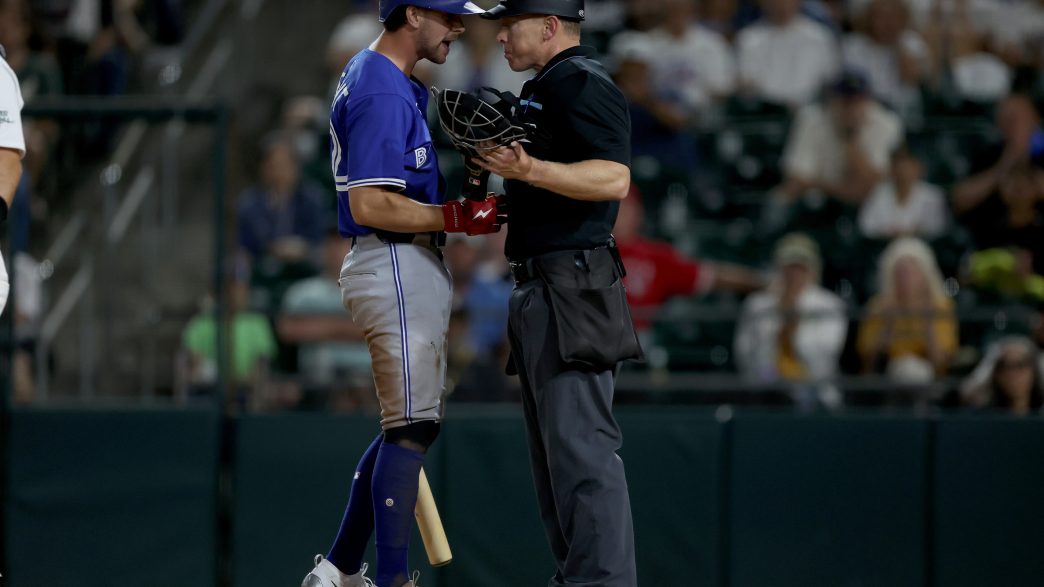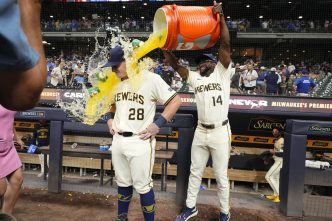In the world of Major League Baseball, the spotlight often shifts from the players on the field to the umpires patrolling behind home plate. And lately, that spotlight has been anything but flattering. Recently, baseball fans have had more than a few reasons to voice their frustrations over some questionable calls, particularly one that left many scratching their heads during a recent game between the Baltimore Orioles and Toronto Blue Jays.
In what was supposed to be a routine pitch from Orioles starter Zach Eflin, a fastball that sliced beautifully into the strike zone ended up being ruled a ball by home plate umpire Brian Walsh. It was a moment that had both Eflin and catcher Adley Rutschman frozen in disbelief. The pitch, which clearly appeared to cross the plate in what many would consider an impeccable location, left fans and commentators alike exasperated.
One of the Orioles’ announcers expressed the collective confusion perfectly: “Wait a minute.” Another chimed in, capturing the tension of the moment, “You couldn’t set it on the tee in the heart of the plate any better. Look at this pitch right here. How do you miss that?” It was a sentiment that struck a chord with anyone watching as the communication disconnect between umpire and players became painfully apparent. Thankfully for the Orioles, this call didn’t impact the game significantly, as they went on to secure a decisive 11-4 victory at Camden Yards.
However, the scrutiny on Walsh doesn’t end there. His controversial calls have been catching fans’ attention, particularly following a crucial moment in a recent game between the Arizona Diamondbacks and Houston Astros. With the D-Backs trailing by one run in the bottom of the ninth, All-Star Ketel Marte stood in with two outs and a runner on first, eagerly awaiting a 3-2 pitch from Astros’ closer Josh Hader. What followed was another contentious moment: a backdoor slider that, by all accounts, was outside the strike zone but was nevertheless called a strike by Walsh, effectively ending the game and leaving Diamondbacks fans and their broadcast team feeling frustrated and bewildered.
In a sport where every pitch can have monumental implications, the role of the umpire has never been more scrutinized. As we continue the season, every missed call or contentious decision like these reminds us of the thin line umpires walk, balancing authority with accuracy, and leaves fans wondering how these calls might shape the course of their teams’ seasons. Whether they’re invoking outrage or inspiring calls for change, the actions of umpires remain a central part of the narrative in baseball, inevitably shaping the experiences of players and fans alike in this timeless game.







